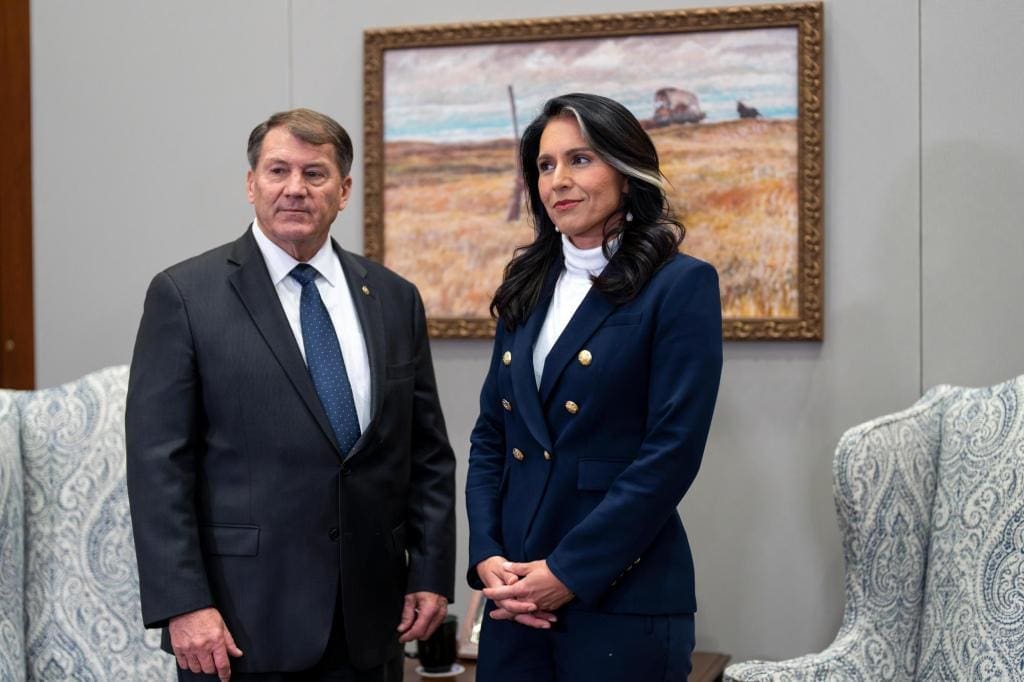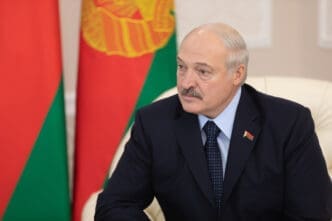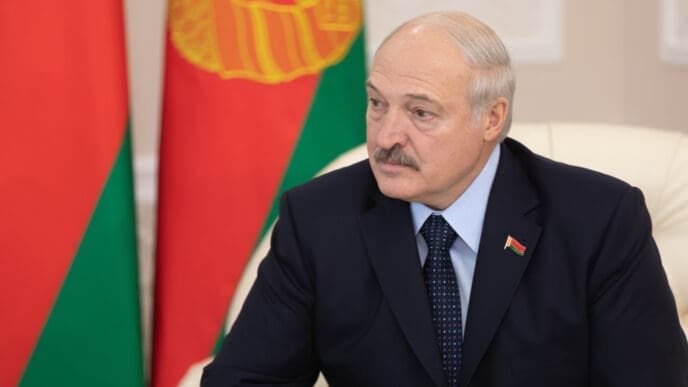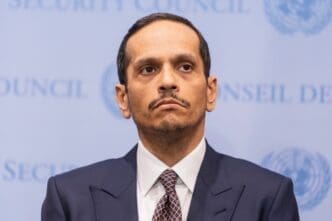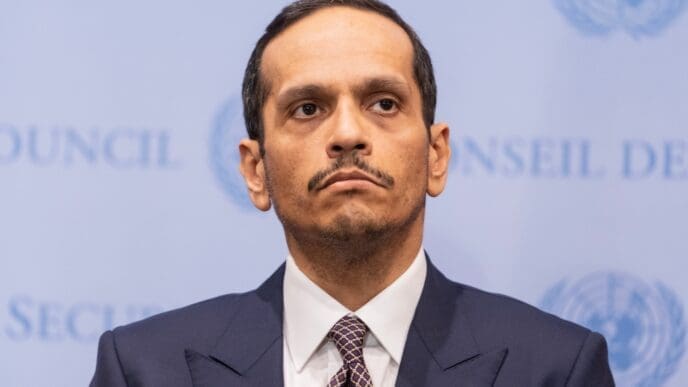Tulsi Gabbard, nominated by President-elect Donald Trump for the role of Director of National Intelligence, encountered intense questioning on Capitol Hill regarding her past engagement with Syrian President Bashar Assad. Her 2017 visit to Syria during its deep civil unrest has raised substantial concerns among her former colleagues and within the national security community.
A cohort of nearly 100 former senior U.S. diplomats and national security officials have petitioned Senate leaders to hold private hearings to thoroughly examine Gabbard’s governmental records. This comes as the Senate sets to assess Trump’s array of nominees, known for their polarizing reputations among political circles.
Gabbard has maintained silence on questions about her 2017 Syria visit while attending private meetings with senators regarding her confirmation. In her statement leaving a Senate meeting, she expressed unwavering support for Trump’s ‘America First’ national security policy, advocating for a reduced U.S. military presence abroad. Yet, her nominations along with others, like Pete Hegseth for the Pentagon, are sparking divisions within Trump’s Republican circles, as well as drawing skepticism from Democrats.
Trump’s cabinet choices include Kash Patel for the FBI, noted for his controversial proposals about restructuring the agency and imprisoning Trump’s critics. Despite criticism about their qualifications, Trump and his allies frame the opposition as mere political sabotage, hinting at experiences faced by prior nominees like Brett Kavanaugh.
The apprehensions shared by the former officials are rooted in Gabbard’s history. Her infamous meeting with Assad, whose regime has been accused of multiple war crimes, took place when the U.S. had severed diplomatic ties with Syria. While Gabbard defends her trip as a necessary diplomatic dialogue, many interpret her actions as aligning with Russian-leaning views. Her comments often echo sentiments contrary to longstanding U.S. foreign policy norms.
As questions persist about Gabbard’s aptitude for unbiased intelligence delivery, calls for thorough Senate vetting grow. The Director of National Intelligence, a role solidified post-9/11 to unify intelligence directives, will require someone capable of furnishing impartial advisories to the President and Congress regarding national security.
Senator Lindsey Graham, along with others, likened the scrutiny faced by nominees to past contentious confirmations, aiming to counteract what they describe as anonymous attempts to tarnish reputations. Contrary to the contentious atmosphere, Senator Joni Ernst of Iowa acknowledged Hegseth’s willingness to enhance military protocols against sexual assault, supporting a fair evaluation based on factual merit.
. Gabbard’s decision to support Trump’s candidacy aligns with her disavowal of her former Democratic affiliation, motivated by Trump’s stance on reducing foreign interventions and skepticism towards aiding Ukraine against Russian forces. This shift has compounded concerns about her ability to remain impartial if appointed to a crucial intelligence role.
Gabbard’s nomination is at the intersection of substantial political and diplomatic debate, bringing national focus to her past actions and affiliations. As the Senate prepares for what may be a contentious confirmation battle, the narrative surrounding her appointment underscores the ongoing polarization within American politics.
Source: Sun-sentinel


